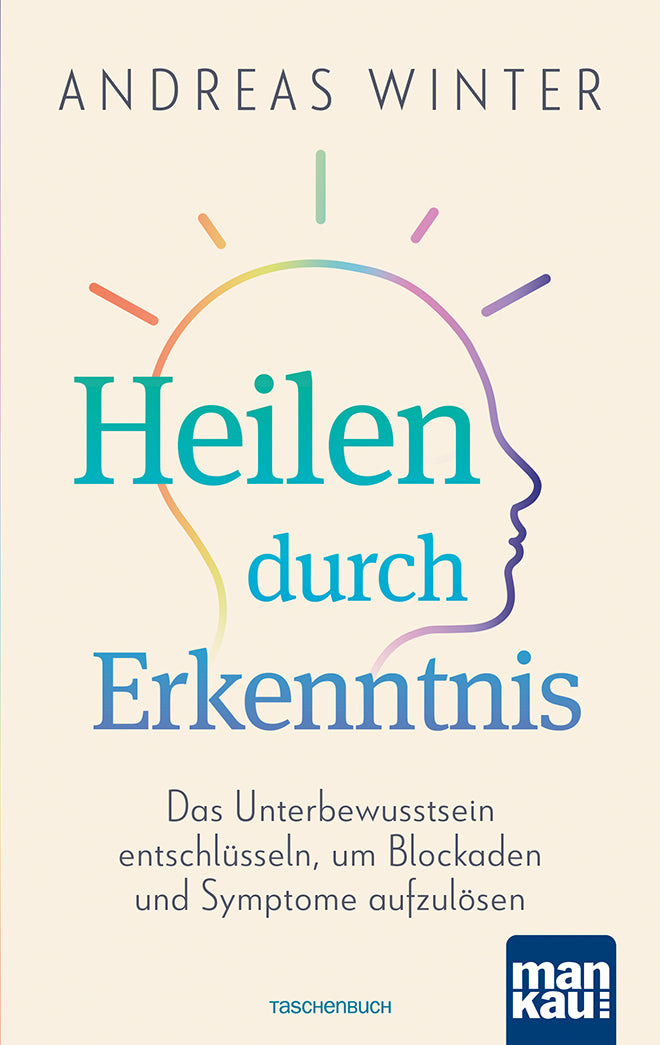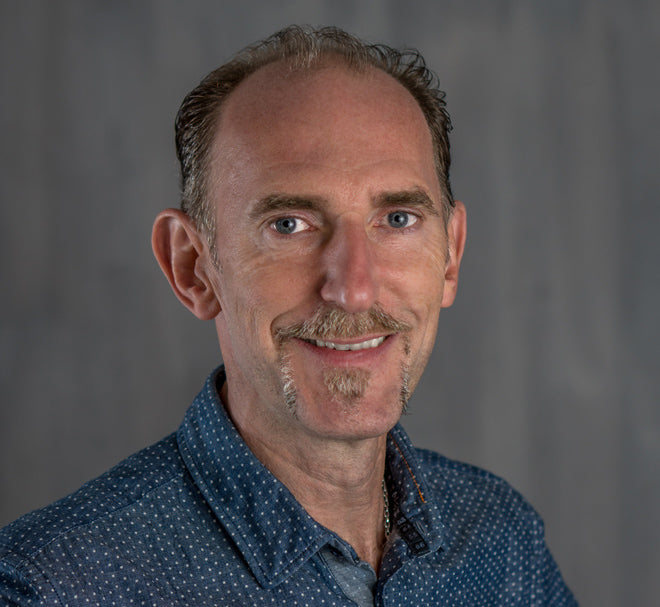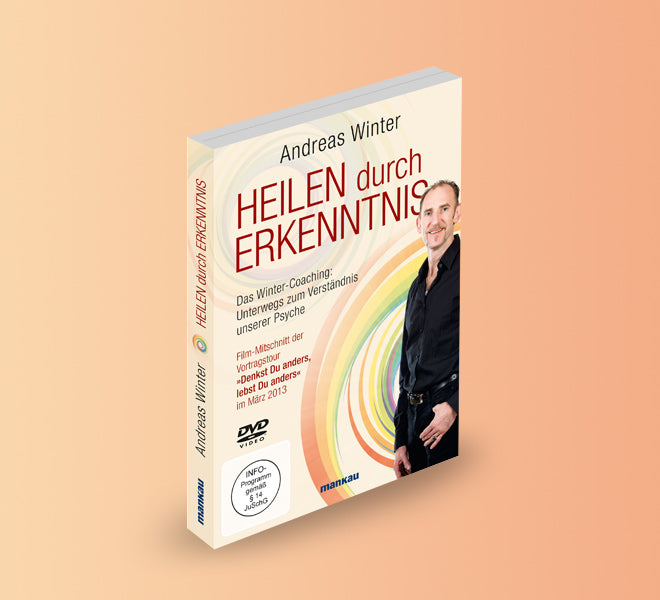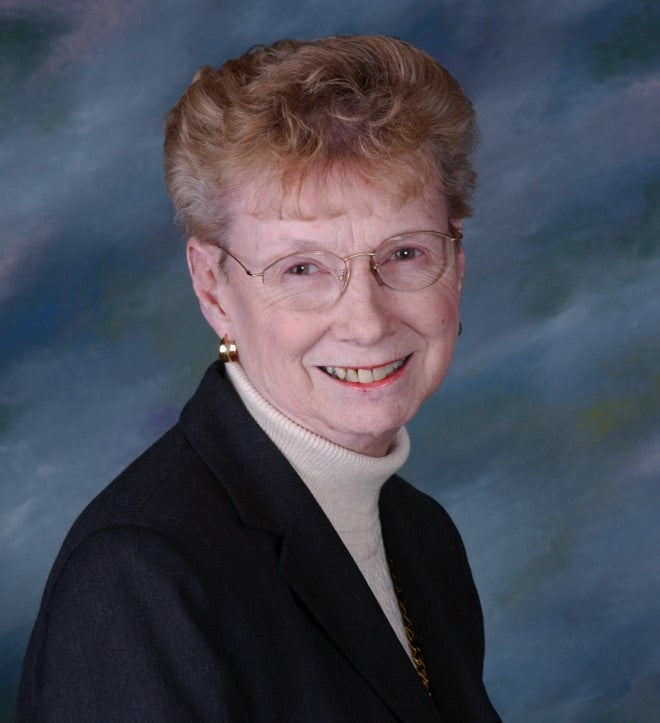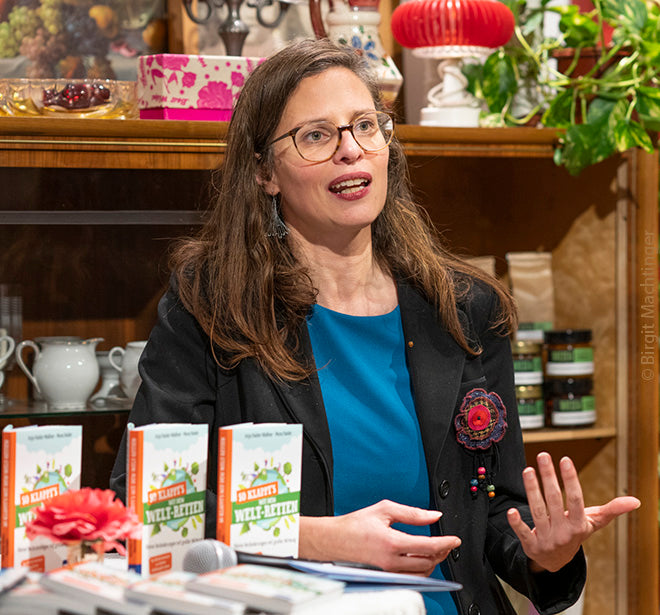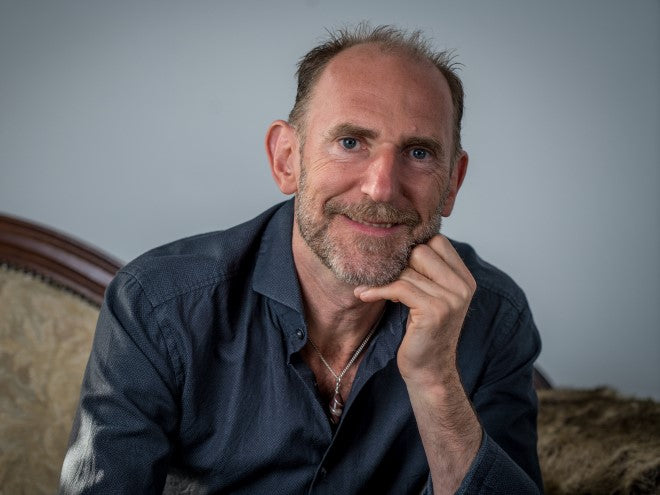
Interview with Andreas Winter: “Not aging, but maturing – that would be the optimum of our existence!”
Interview with Andreas Winter: “Not aging, but maturing – that would be the optimum of our existence!”
"In my opinion, aging is a physiological degeneration, a process that ends in decay. Ripening , on the other hand, is a morphological evolution, a constant improvement in the possibility of being. If we think of fruit, 'ripe' means being perfect in one's existence. 'Ripe' would therefore be the optimum of an existence, and 'old' its downfall." The well-known qualified teacher and coach Andreas Winter , author of the paperback " The Psychology of Staying Young " and the audio book of the same name, explains how we can turn back the biological clock and awaken our inner spring by resolving stress and stressful microtraumatizations.
With the "Psychology of Staying Young", your anti-aging guide from the successful Psychocoach series is being republished as a paperback and as an audio book with audio coaching. What motivated you to create this expanded new edition, and what new things can readers and listeners expect?
Andreas Winter: Personally, it is not enough for me to make small cosmetic changes from edition to edition. If there are new findings, facts and research results in the subject area described, or if what the book is about has developed further, then it is time for a completely revised and updated new edition. In this case, my research and experience have enabled me to get to the point even more clearly than I was able to do almost fourteen years ago. What is new is that the aspect of stress reduction is presented in a more practical way. Stress makes you old and sick, I claim, and I provide a chapter on how to get rid of stress. The audio book of the same name, which I recorded myself, also contains a few additional tracks for self-coaching. The insider tip is a virtual gym with which you can influence your body using mental techniques alone, especially when it comes to building muscle and body shaping, but also to promote mobility.
The question of the source of eternal youth is ancient and has occupied scientists and philosophers for thousands of years. What role does psychology play here, and where would you place your approach in the broad spectrum of answers ?
Andreas Winter: My approach is as fundamental as it is simple: in the earliest phase of our perception, we learn our perception patterns. So-called microtraumatizations, such as a lost twin, feelings of grief, fear or shame in the mother, an attempted abortion or shocking experiences such as an accident, are perceived by the child and stored completely unprocessed. Through corresponding triggers - experiences that are reminiscent of the trauma due to their similarity - such perception patterns can develop into full-blown personality disorders. As a result, we become ill, age faster and lose our vitality. The solution only comes about by uncovering the original trauma, making it conscious and thus rendering the triggers harmless. This reduces the release of stress hormones and the signs of aging diminish again. What remains are the attractive signs of maturity. We are clearly in the area of the interface between depth psychology and endocrinology. What we learn and feel controls our body, but can be interpreted subjectively. That's why you can't follow a set pattern, but have to look individually at what is robbing you of your vitality and how you can regain it.
While transhumanists want to abolish old age and death using technical means, medicine and the pharmaceutical industry are turning the desire for health and vitality into a lucrative business. What is so bad about aging that it should be overcome by all means possible?
Andreas Winter: Our performance-oriented society is characterized by the fact that we should be as productive and well-adjusted as possible. Old people are often seen as backward, stubborn, frail and useless, simply as incapable of performance and unattractive. Hence the great fear of old age. But the more we pretend that we are still as fit as a fiddle, the more inauthentic we appear upon closer inspection. That is why artificial fitness enhancers such as pills, prostheses and disguises are like a boomerang that comes back to haunt us. The more we fight against aging, the more we fight against life, is what I am saying. That means: If we really want to have respect, recognition and a meaningful place in society, we should not cheat and deceive ourselves and others, but we should develop and stand by who and how we are. In my opinion, this is also due to the fact that we live for around six decades - from kindergarten to retirement - under the control of others and only then do we have the opportunity to live as we want. But by then, many of us are already burned out. So "anti-aging" is also about making up for the life we have missed.
Why do some people still live on the sunny side of life even in old age and enjoy all its joys full of vitality, while others physically and mentally deteriorate and become resigned at an early age?
Andreas Winter: Simple answer: If you suffer from your life, you will soon lose it. But if you still have a good emotional reason to live, you are given a fresh new day every morning - that is the unanimous opinion of all "mega-seniors" aged between 90 and 100 that I asked about this. Many people in the public eye attest to this, as do those for whom family, relationships or simply their everyday lives are important.
In order to turn back the biological clock and stop the aging process, you differentiate between aging and maturing , but also between the body and the psyche. How should we imagine this, and why should it work?
Andreas Winter: According to the definition of the World Health Organization (WHO), anyone who has reached the age of 65 is considered old. According to this statement, aging is only dependent on the number of years of life reached. However, in Germany and the USA, a "geriatric patient" is only referred to as someone over the age of 70. Maturity is usually used to describe middle age. This is characterized by physical development being complete and psychological stability having occurred. If we think of fruit, "ripe" means being perfect in one's existence. In my opinion, "aging" is a physiological degeneration, a process that ends in decay. "Maturation", on the other hand, would be a morphological evolution, a constant improvement in the possibility of being. "Mature" would therefore be the optimum of an existence, and "old" its downfall. Some progressive scientists also speak of aging as a cell poisoning. Ageing is therefore a biological process that leads to a reduced ability of the individual to balance the stresses placed on the organism; a kind of inability to adapt that leads to death. I say: as long as you mature, you do not age; if you age, you do not develop optimally. This is why there are so many senior citizens who can be sure of our admiration, but unfortunately also a lot of people who already seem "worn out" in "middle age". We age from the moment our maturity is restricted. If you help a chronically ill person to no longer feel stress - not temporarily through meditation or a tranquilizer, but fundamentally, by breaking a pattern - they usually recover, and you can see it.
As in your other guides, the reason for illness and self-destruction is often due to the fact that the psyche ticks according to a certain formula, which you call the "algorithm of the psyche." What is this all about and how does it help in treating illnesses?
Andreas Winter: The algorithm, which says "to realise your own intention with as little resistance as possible", is quite simply underestimated. The psyche cannot be stopped in its efforts. Resistance arises from the subjective feeling of "powerlessness", not unconsciousness, but in the sense of having no chance of fulfiling your intention or satisfying your needs on the path you have chosen. If you forbid someone from doing something, the most common reactions are: they take it with defiance or even violence, or they sorrowfully give it up in order to avoid further restrictions - such as punishment. If you forbid someone from doing something, for example. If a child eats chocolate, for example, after being conditioned to believe that sweets are a reward and/or a sign of emotional affection, they will either a) become overweight because they snack in secret (defiance), or b) get tooth decay because they produce excessive amounts of acid when eating out of fear (due to stress hormones caused by a feeling of guilt), or c) they will start to despise overweight people so as not to contradict the judge in their own head (conformism). If a person feels trapped, for example as a child at school or as an adult at work, they will either rebel internally or give up - both of which cost time. If you let a person feel throughout their childhood that they are unwanted and not worthy of love, what do you think they will look like in the course of their life? Radiantly happy and exemplary content? Hardly.
This abuse can be remedied by emotionally re-evaluating the devaluation suffered. This requires certain techniques that are now available. Not as complicated as brain surgery, but almost impossible for the layperson without prior knowledge. If a person learns to deliberately adapt to change, chronic stress does not arise. You can test this yourself: when summer is over and the temperatures drop, many people get the flu. This is the result of a stress-related weakened immune system. But if you spent the summer in the Antarctic and now come to Germany, which is 30 degrees warmer, you can walk around for a week without a jacket and not catch a cold. It's the same with childhood traumas: if you look at them from a different perspective, they become harmless.
Your own story is one of the often astonishing examples from your successful practice. You were diagnosed with cancer in 2019 and were able to beat the disease despite life-threatening setbacks. How did you do that and what advice would you give to other people in such a situation?
Andreas Winter: First of all, you have to know how I managed to suddenly become terminally ill as an absolutely happy and content person. I think that's unusual. But I also had a hidden microtrauma from the time of embryonic development. As I said, a fetus feels everything its mother feels and takes it on without restraint. A few years ago, a strong trigger opened up this wound and caused cancer due to stress. I would probably have gotten rid of it naturally if I had neutralized the trigger. But I had neglected to do that and underestimated it. Suddenly I needed a quick solution. Doctors helped me to remove the tumors quickly, so that I could do the rest with a little trauma work, as I describe in my books.
Basically, I think that if you are like me and are too lazy or even too blind to deal with your emotional stress, you shouldn't consume any acid-forming foods during this time. The body doesn't need any more stress. Cut out sugar, white flour, meat and coffee immediately, eat a strictly alkaline diet and drink a lot - then you can carry on being angry and tormented without getting cancer. Or you can tackle the problem and continue to "let off steam". Both are possible. I recommend a healthy mix of both: eat a low-stress diet and solve your problems.
Book tip:
Andreas Winter: The psychology of staying young. How to turn back your biological clock. Mankau Verlag, 1st edition February 2022, paperback, 12 x 19 cm, 190 pages, 12.00 euros (D) / 12.40 euros (A), ISBN 978-3-86374-649-0
Audiobook tip:
Andreas Winter: The psychology of staying young. How to turn back your biological clock. Mankau Verlag, 1st edition February 2022, 1 MP3 CD in jewel case, total running time approx. 342 minutes, 8-page booklet, 18.00 euros RRP (D/A), ISBN 978-3-86374-648-3
Link recommendations:
More information about the paperback “The Psychology of Staying Young”
To the reading sample in PDF format
More information about the audio book "The Psychology of Staying Young"
More about author Andreas Winter
Our social networks − for questions, criticism, suggestions
